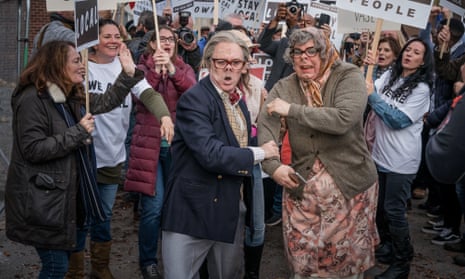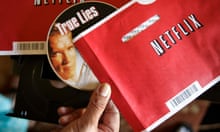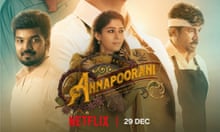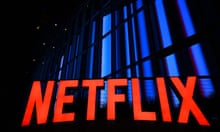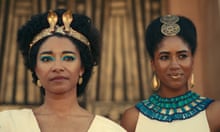The Mighty Boosh and The League of Gentlemen have been removed from Netflix because of their use of blackface, with critics calling the move an “arbitrary gesture” that does little to combat racism.
The League of Gentlemen’s three series and specials are still on BBC iPlayer and the broadcaster confirmed there were no plans to remove it from the streaming service.
The Mighty Boosh’s Spirit of Jazz and The League of Gentlemen’s Papa Lazarou characters were both played by white actors wearing blackface, and the Guardian understands they were seen as problematic by Netflix.
Papa Lazarou – described as a “blacked-up ringmaster who calls everybody Dave” – was inspired by an old landlord of the show’s creators, Steve Pemberton and Reece Shearsmith. The character was accused of harking back to the “ugly legacy of minstrelsy” but Shearsmith has always denied the character was supposed to be a black man.
The Spirit of Jazz character is supposed to be the ghost of fictional jazz musician Howlin’ Jimmy Jefferson and was played by Noel Fielding in the series.
The comedian Jack Carroll tweeted that the decision to remove the comedy was a way for Netflix to avoid any “real work” to counteract racism. “It’s an arbitrary gesture that means they don’t have to put any real work into combatting actual instances of racial discrimination and comedy history is getting smashed in the process. Glad I kept hold of my DVD’s,” he tweeted.
On Tuesday, Little Britain was removed from Netflix, BritBox and BBC iPlayer due to concerns about the use of blackface by stars, David Walliams and Matt Lucas. The comedy sketch show, which first aired in 2003 on BBC Three, has been removed along with the pair’s follow-up, Come Fly With Me.
The latest removals, taking place as the Black Lives Matter protests continue, have started a debate about the kind of TV shows and films that cross a line with their depictions of race.
The recently launched service HBO Max has removed Gone With the Wind after criticism of the American civil war romance epic’s positive depiction of slavery, but confirmed it will eventually return to the service with a “discussion of its historical context and a denouncement of those very depictions”.
Cops – the reality show, which showed police car chases, arrests and violent apprehensions – was cancelled by the Paramount Network after 32 seasons. The civil rights group Color of Change applauded the decision, saying Cops and shows like it played a “significant role in advancing distorted representations of crime, justice, race and gender within culture”.
Channel 4 removed Bo Selecta from its All4 streaming service after white comedian Leigh Francis, who starred on the show doing impressions of black celebrities including Craig David and Trisha Goddard, apologised for using blackface.
Deadline reported that Netflix has removed four shows from its services in Australia and New Zealand, which starred Australian comedian Chris Lilley, who regularly performed in brownface.
At present, BBC iPlayer has Lilley’s Summer Heights High and We Can Be Heroes on its service, but two other shows that have been accused of containing racist portrayals, Angry Boys and Jonah From Tonga, are listed as not available.
The debate about racist or problematic films and TV shows being on streaming platforms isn’t new.
In April 2019, it was reported that Disney would not be including Song of the South on its streaming service Disney+. The film has long been criticised for its depiction of life on a plantation as idyllic, and it grossed $65m at the US box office in 1946, but was never released on DVD in the country. Disney+ includes warnings that show before films on the streaming service that, in its words, “contain outdated cultural depictions”.
